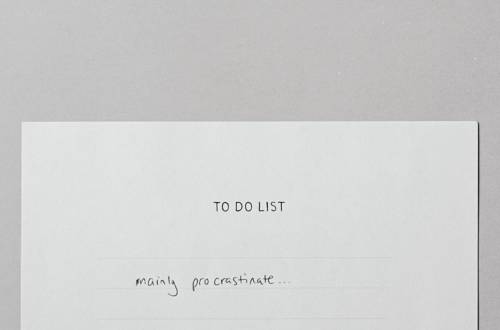
Please, Don’t Try to Fix Me: How to Respond When Others Express Their Feelings
Have you ever confided in a friend or family member about something upsetting, only to walk away from the conversation feeling worse than at the outset? I know I have. I can’t count the number of times I’ve tried to express my feelings about a particular situation to friends or family members and have received solutions in return. Or, worse, I’ve been told I shouldn’t feel the way I do.
This topic has come up for me a lot lately, so I thought it would make a timely blog post. I, too, am guilty of at times responding by suggesting possible solutions when loved ones tell me about their problems. But, I can say with certainty: it is the wrong approach. And telling someone you care about, or anyone for that matter, they should feel differently in a given situation is not only injurious but insulting as well. I might even go so far as to wager that, more often than not, these types of responses backfire and produce the opposite of the intended result. They make us feel worse, not better.
The Mistake
Let me illustrate with an example. Several years ago, I was trying to explain how feeling depressed affected my ability to function at times. The person to whom I was speaking responded: “but you have no reason to be depressed!” They then proceeded to point out all the ways my life was great and why I shouldn’t feel sad.
This person entirely missed the point. I already knew the reasons my life was great, but I felt sad despite them. (That’s a part of what distinguishes depression from normal sadness—the lack of reason. It’s the same with anxiety, too—the fears are irrational, but they persist nonetheless.) I truly believe this person meant well and thought their comments were helpful. However, my sadness deepened after that conversation. Not only was I not understood, but they had unintentionally reinforced the idea that there really was something wrong with me! After all, why else would someone be sad without reason?
This type of experience is all too common. Well-meaning people, who I imagine must think they’re being helpful or inspiring, feel compelled to point out all the reasons your feelings are wrong. It’s as if this is new information or those things had never occurred to you before. If you could just realize how fortunate you are, or that others have it so much worse, it would somehow quash whatever negative experience you’ve just had. I understand the temptation to go this route; really, I do. I have done it many times. And, even though I know better now, it is often my first reaction when listening to a friend.
The fact of the matter is, though, most of us just want our feelings to be heard and understood. We need to feel validated before we can move on to figure out a solution. Most of the time, we can figure out the solution or adjust our thinking on our own. (I’ll come back to this point later in the post.)
Pink Elephants
To illustrate, let me trot out a classic example. If you ever took a Psychology 101 class in college, you’ve probably heard this one. For the next five minutes, I want you to try not to think about pink elephants. Think about anything else you want, but don’t think about pink elephants. Ready? Set. Go!
.
(Cue the Jeopardy! music)
.
How long did you make it before the image of a pink elephant popped into your mind? My guess is: not very long. Inevitably, the pink elephant will force its way into your thoughts. Psychologists call this an “intrusive thought. ” It invades your consciousness despite your best efforts to avoid it. There is a trick to the pink elephant exercise, though: you must start by picturing the pink elephant. We need to address that image before we can let it go; otherwise, it haunts us.
In much the same way, we need others to be our cheerleaders. We need them to say “ugh, it sucks that your boss took her anger out on you! You must feel so hurt and frustrated!” We need our confidants to help us acknowledge the emotions we feel before we can ever get to the logical thinking behind problem solving. We are all intelligent people, perfectly capable of identifying possible courses of action without any outside help. And, most likely, we have already thought of and dismissed them. We know the myriad reasons they won’t work for us. Solutions are not what we need; understanding is!
The Key is Understanding
Imagine, for a moment, you are trying to explain the difference between lemons and limes to someone. Lemons are yellow and limes are green, you might say. If that person doesn’t seem to be understanding your explanation, what do you do? You try to explain the difference again, maybe in a slightly different way. Lemons are larger than limes. If that person is still not getting it, you would probably try to explain yet again in another different way. Both are acidic, but lemons have a sour flavor and limes are bitter. (Unless that person is a two-year-old who insists, in all seriousness, that “it’s a lemon” when it’s really a lime, at which point you must simply give in and say, “Yep, it’s a lemon. I guess I was wrong!”)
The point is: when we don’t feel understood, we keep explaining. It does no good to try to move on, because we are still hung up on the explanation part. I am really not going to trust that you can serve me a classic margarita, a lemon meringue pie, or a cup of earl grey tea with honey and lemon if you don’t seem to grasp the difference between the two citrus fruits. Likewise, why would I trust your solutions if you don’t seem to understand my experience of the situation?
Listening & Responding
This is one of the primary reasons talking to a therapist is different and often more beneficial than talking to a friend. One of the cornerstones of effective therapy is building rapport with clients through empathetic listening. It’s actually the first thing we learned in my graduate school clinical skills course. We spent a long, long time practicing this skill. It involves conveying an understanding of the situation and its associated emotions, both voiced and underlying, back to the speaker. It sounds simple, but it’s actually much harder to do than it seems.
Some people are naturally better at this than others. But, it is a skill that can be learned and honed, just like any other skill. Personally, I have always found it challenging and unnatural. That means it takes conscious effort for me to stifle my initial inclinations (don’t try to solve, identify the feelings/emotions). It’s also a major reason I could never be a therapist.
I have one friend in particular, though, who is really excellent at this type of listening and responding. Perhaps it’s an innate ability, or because she’s a teacher, or some combination of both, but I always feel heard and understood when we talk. She identifies my feelings and reflects them back to me, even if I haven’t explicitly said how I feel. She asks the type of questions that make me reflect on and, at times, re-frame the situation. But, I never feel judgment from her, no matter how ridiculous my reaction may be.
Therapists don’t solve other people’s problems. Instead, therapists help people understand and process their emotional response to a particular situation (or situations). That way, they can arrive at their own solutions. In fact, changes we devise and implement of our own accord are much more likely to be successful than any suggestion from an outside source because those changes come from a place of insight and true desire. No external voice can ever give you that. Only you can control your own mind. (Anyone else remember those billboards and TV commercials with Smokey Bear saying “only YOU can prevent forest fires”? No? Just me? I digress.)
The Takeaway
So, how can you be a better, more helpful friend or confidant? Learn how to become an empathetic listener, which starts with being an active listener. If you are already thinking about what you’re going to say next while your conversation partner is still speaking, then you are not truly listening! How should you respond when someone confides in you about a situation where they felt especially angry/sad/frustrated/anxious/afraid/hopeless/[insert emotion here]? Don’t judge, but try to understand. Ask clarifying, open-ended questions.* And, try your absolute best to put yourself in that situation in that person’s frame of mind. Read that again. The critical piece is stepping beyond your own experience to really see things from the other person’s point of view. This takes practice, but it makes a world of difference, and it will absolutely make you a better friend.
And, whatever you do, never (I can’t stress this enough) never invalidate the other person’s feelings. Don’t tell others how they should feel or imply that someone’s feelings are wrong—nothing will shut down a conversation faster. If that statement triggers you or makes you want to yell “but, but, but!” at the screen, check that you are not confusing validating someone’s emotional experience with condoning their emotional response. You don’t need to agree with someone’s feelings to acknowledge them. All feelings are valid simply by virtue of comprising someone’s response to an event. They are valid regardless of whether you think they’re productive or “correct” (whatever that means). After all, I am the only one who has lived my own life. I am the sole expert on my own experience.
So listen to me. Understand me. Sympathize with me. Empathize with me. You can even disagree with me! Give me the validation I need, whatever that may be, so I can move forward and find the solutions to my own problems. But please, when the tears come streaming down my face (sorry Coldplay!), whatever you do, don’t try to fix me.
Notes:
*Open-ended questions are ones that do not have yes/no answers. These questions often begin with “what” or “how”—-“what makes you think that?” or “how does that make you feel?” Technically, questions starting with “why” are also open-ended. I recommend avoiding them because they often come across as judgmental. (Think about a parent saying, “why didn’t you clean your room when I asked?”)
Here are a few resources if you’re interested in learning more about how to become a better, more empathetic listener:
“Listening Well: The Art of Empathic Understanding” by William R. Miller






6 Comments
Emily
I always appreciate a good listener. This makes me wonder what exactly I do when I am “listening.”
Felicia Denise
I’ve been dealing with this a lot these last eight and a half months since I lost my husband.
I get it. I’m sad. Depressed. Lonely. Well-meaning family and friends want me to feel better, to be better, but using tired euphemisms and cliches or trying to drag me out to “have fun” cannot and will not “fix” me or anyone else dealing with loss. Ever.
We’re encouraged in our widow group to not disconnect from family gatherings, clubs, events, etc., for too long because the isolation will only exacerbate, or even extend our grief. However, it’s a challenge, at best, to do this when people say things like, “You have to choose happiness,” “Don’t dwell on your loss,” or the truly ridiculous “Think positive.”
Grrr!
As you said, empathy works. Sympathy works. But do not TRY to diagnose and help anyone through anything they’re dealing with. Just listen. If there’s a need there, you’ll hear it in their words… and maybe it’s just for someone to hear them.
Patty
Most people just want confirmation they are not crazy, I believe.
I wish more people would grasp the fact that whatever you are going through, it doesn’t mean you’re broken and need to be fixed. A vase can break, a human can metaphorically fall apart but will never break. Being depressed is, however, a state of mind. It doesn’t define you as a person. I believe people should remember that too. In my opinion it is never without a reason. At the same time, it is also nothing to be ashamed about.
Fantastic post, dear Lori.
Pingback:
K E Garland
I so agree. People’s negative emotions are uncomfortable for most, and so what do they do? Try to fix it. This is why I’m very selective (now) about what I talk to with whom. I don’t need fixing, just to be heard.
Pingback: